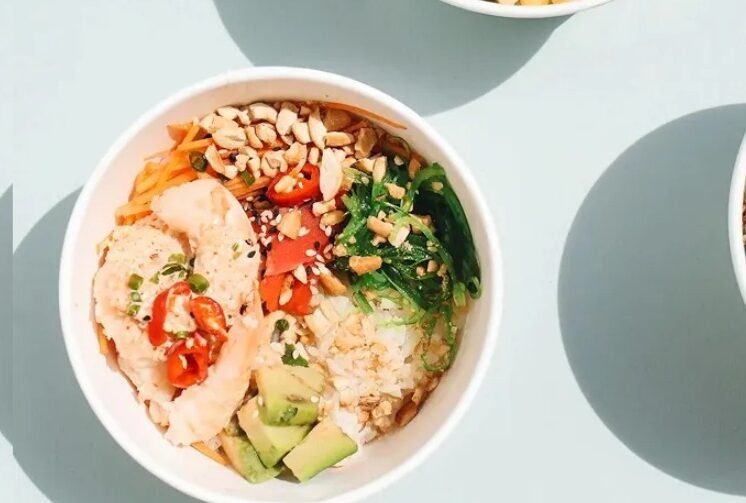Wholesome Food from Indonesia: Rediscovering Local Superfoods for a Healthier Lifestyle

In today’s fast-paced world, the concept of wholesome food is no longer a trend but a necessity. Wholesome food emphasizes natural, minimally processed, and nutrient-dense ingredients that not only nourish the body but also sustain long-term well-being.
Interestingly, Indonesia, with its vast biodiversity, offers an abundance of local wholesome foods that are rich in vitamins, minerals, fiber, and plant-based proteins. Yet, many of these treasures are often overlooked in favor of modern, imported products.
By returning to these indigenous ingredients, we not only improve our health but also support sustainable farming and preserve culinary traditions.
What Makes Indonesian Food “Wholesome”?
Wholesome food is characterized by three essential principles:
- Minimally processed – keeping nutrients intact.
- Nutrient-rich – providing essential vitamins, minerals, and natural fiber.
- Balanced and sustainable – good for human health and the environment.
Indonesian local foods check all these boxes. From protein-packed tempeh to fiber-rich cassava, these foods represent authentic, affordable, and sustainable nutrition.
Top Indonesian Wholesome Foods Worth Celebrating
- Tempeh – The Fermented Protein Powerhouse
Tempeh is a traditional Indonesian food made from fermented soybeans. Unlike tofu, tempeh retains the whole soybean, making it high in protein, probiotics, and dietary fiber. It is widely regarded as one of the best plant-based protein sources globally.
- Health benefits: improves gut health, boosts immunity, and supports muscle recovery.
- Popular uses: fried tempeh, stir-fries, salads, or even as a burger patty substitute.
- Cassava (Singkong) – The Versatile Energy Source
Cassava, locally known as singkong, is a root vegetable consumed across Indonesia. Rich in complex carbohydrates and naturally gluten-free, cassava is a wholesome alternative to refined grains.
- Health benefits: provides slow-release energy and aids digestive health.
- Popular uses: boiled cassava, cassava chips (kripik singkong), and cassava flour (tapioka).
- Local Fish – Omega-3 from Indonesian Waters
Indonesia’s seas are home to abundant fish varieties such as mackerel (ikan kembung), sardines, and tuna. Compared to imported salmon, local fish are more affordable yet equally rich in omega-3 fatty acids, essential for heart and brain health.
- Health benefits: supports cardiovascular health, improves memory, and reduces inflammation.
- Popular uses: grilled fish, fish curry (gulai ikan), and steamed dishes.
- Moringa Leaves (Daun Kelor) – The Green Superfood
Moringa leaves are often called the “miracle tree” because of their dense nutritional profile. Packed with vitamin A, vitamin C, calcium, and iron, moringa is a powerful natural supplement.
- Health benefits: combats anemia, strengthens immunity, and supports bone health.
- Popular uses: moringa soup, tea, or smoothies.
- Red Rice (Beras Merah) – Fiber for Long-Lasting Energy
Unlike white rice, red rice retains its outer bran layer, making it rich in fiber, antioxidants, and essential minerals. It is an excellent low-glycemic index food, perfect for those managing weight or diabetes.
- Health benefits: stabilizes blood sugar levels, supports digestion, and promotes satiety.
- Popular uses: paired with vegetables, protein dishes, or used in rice bowls.
Wholesome Living Through Local Wisdom
Adopting wholesome food doesn’t always mean looking to foreign superfoods like quinoa or chia seeds. Indonesia already offers equally powerful alternatives that are fresh, affordable, and deeply rooted in tradition.
By incorporating more tempeh, cassava, local fish, moringa, and red rice into daily meals, we promote not only healthier lifestyles but also local food sovereignty.
Why Choose Wholesome Indonesia?
- Nutritional richness – naturally packed with proteins, fibers, and antioxidants.
- Accessibility – widely available across traditional markets in Indonesia.
- Sustainability – supports local farmers and reduces reliance on imported goods.
- Cultural pride – reconnects modern society with ancestral food wisdom.

